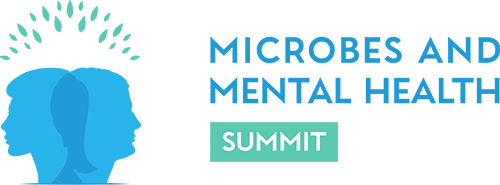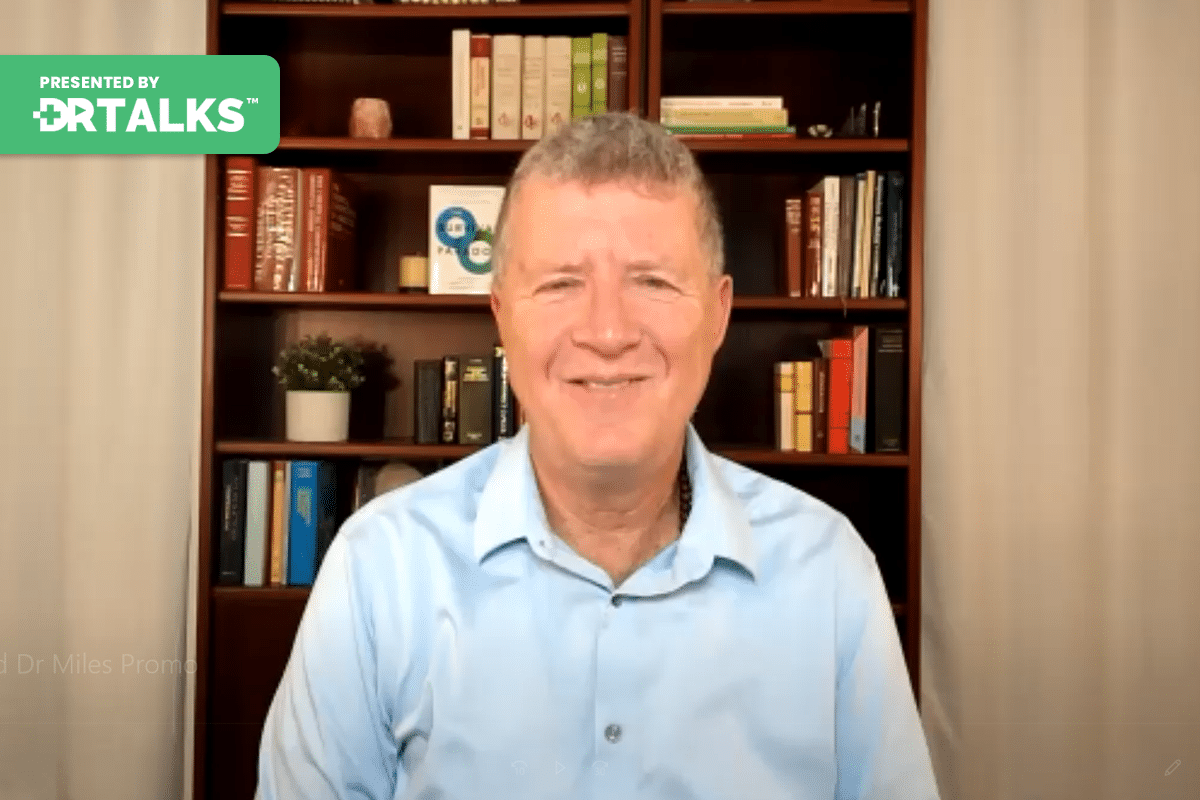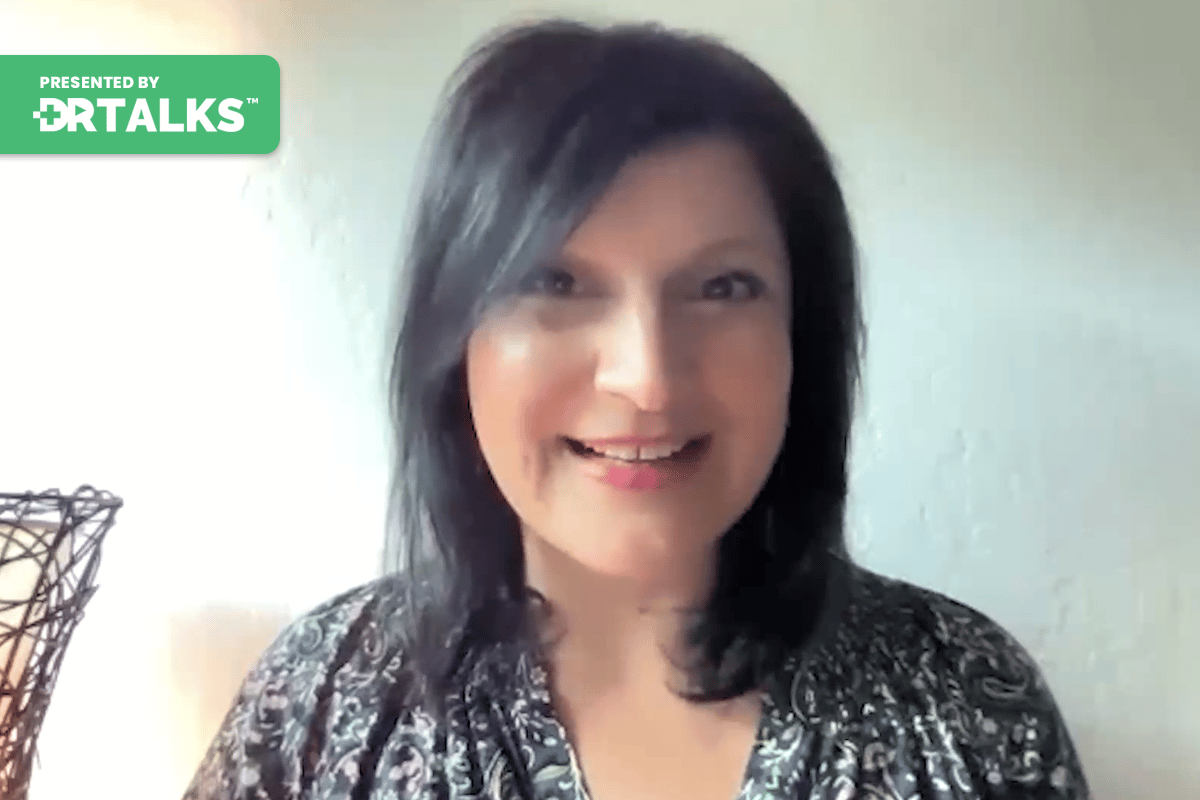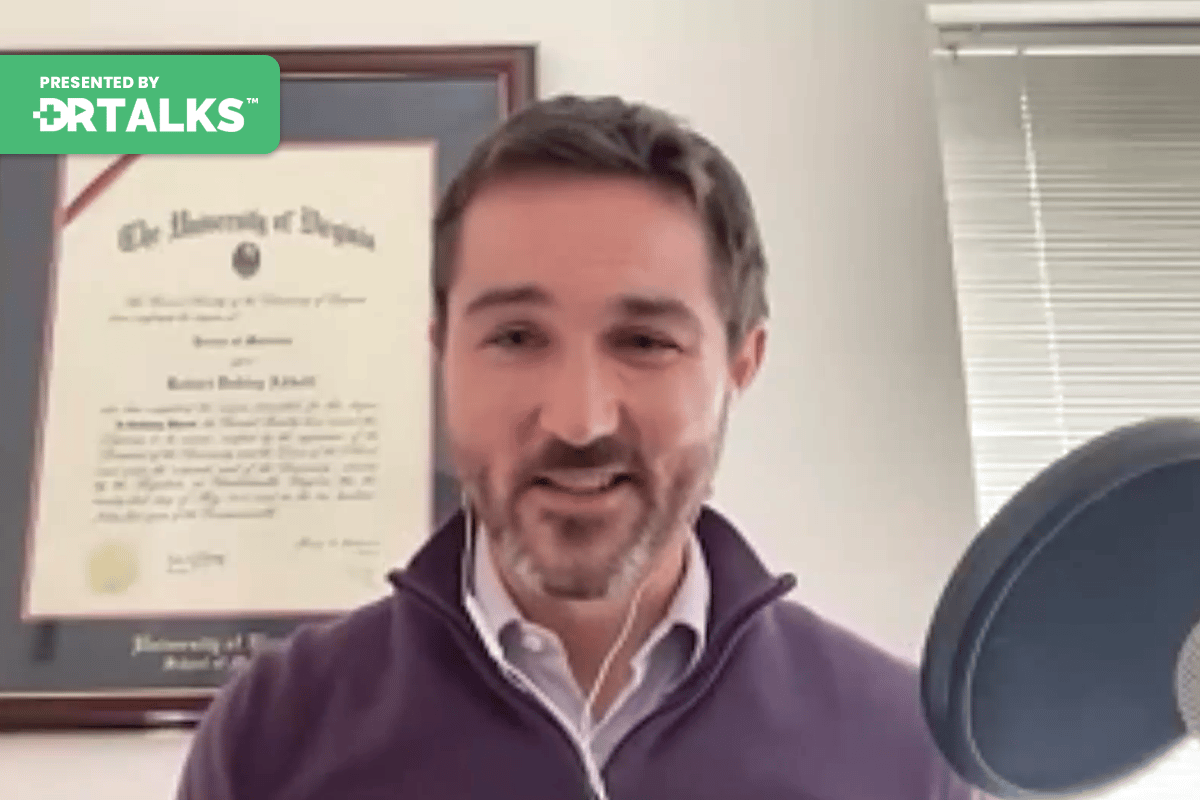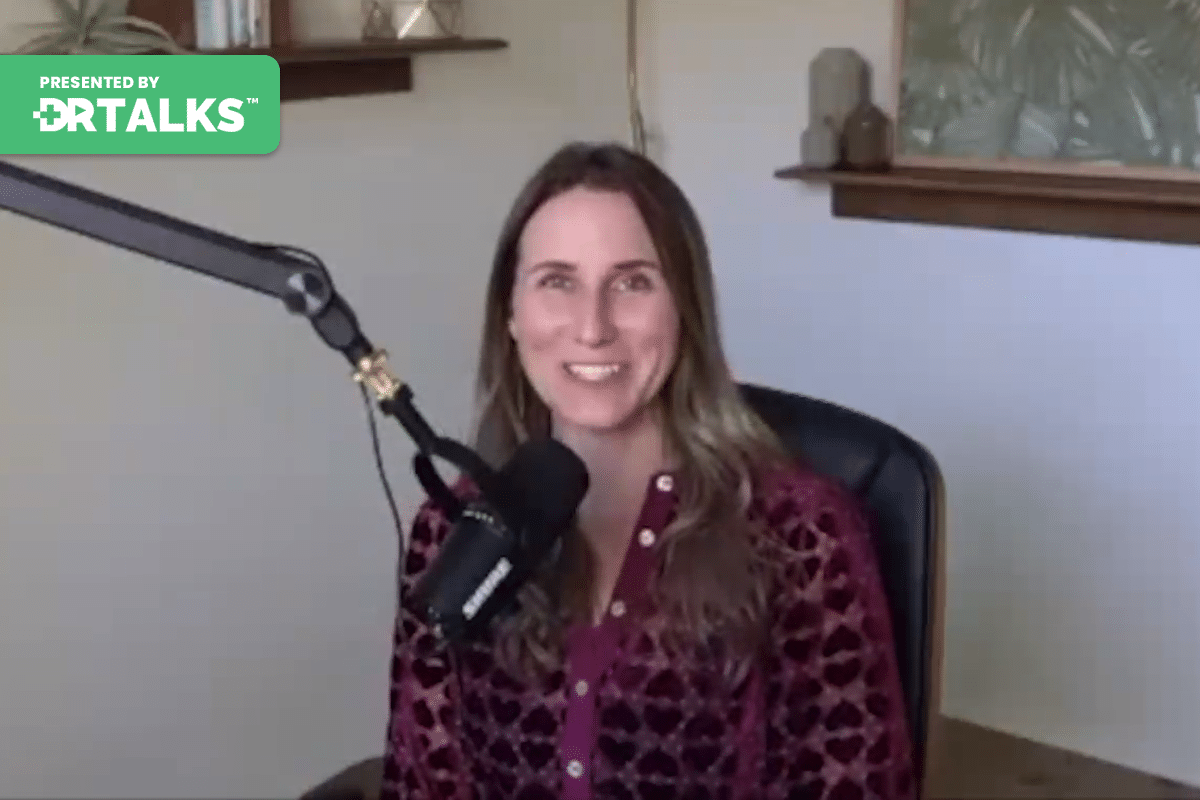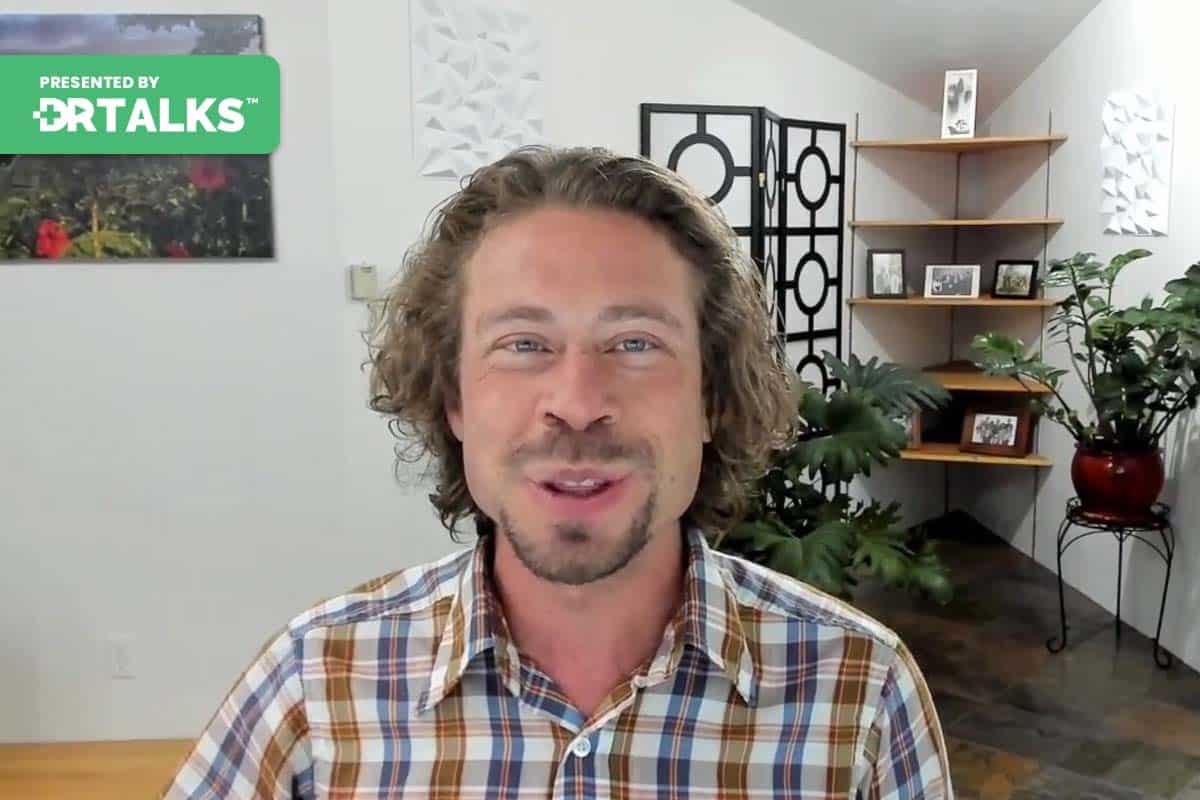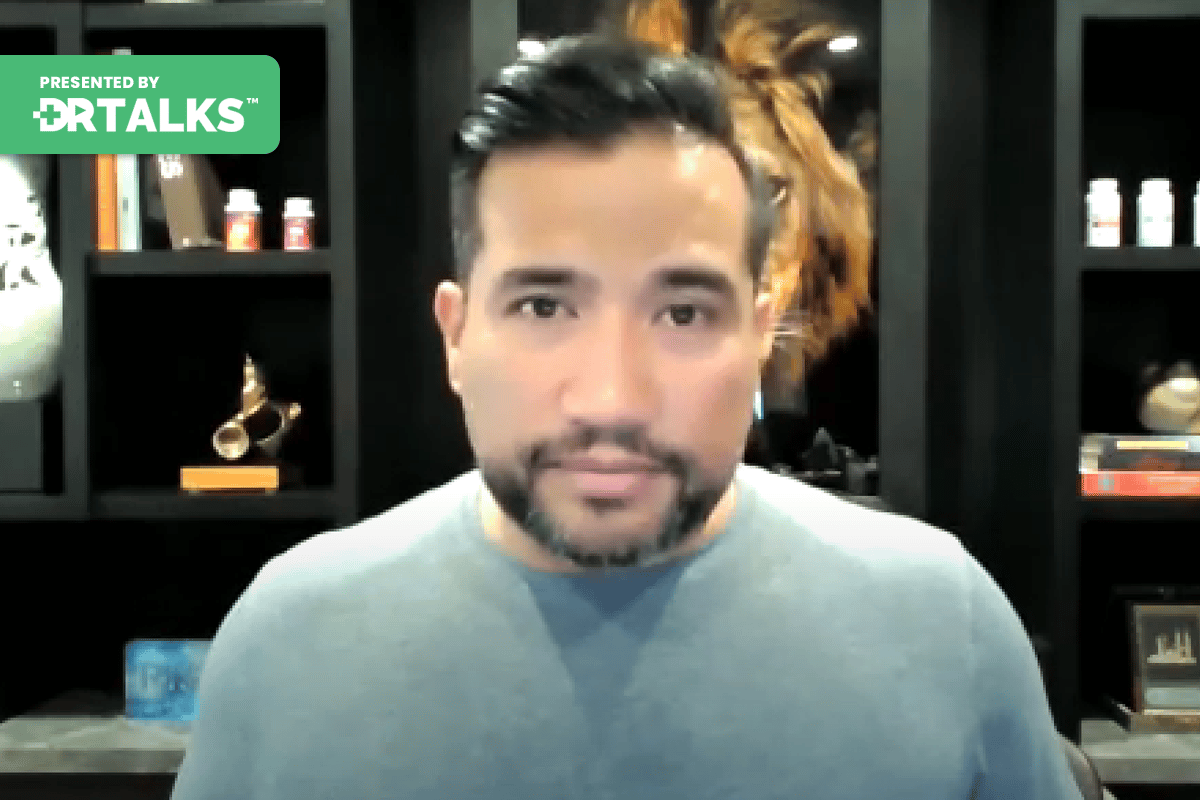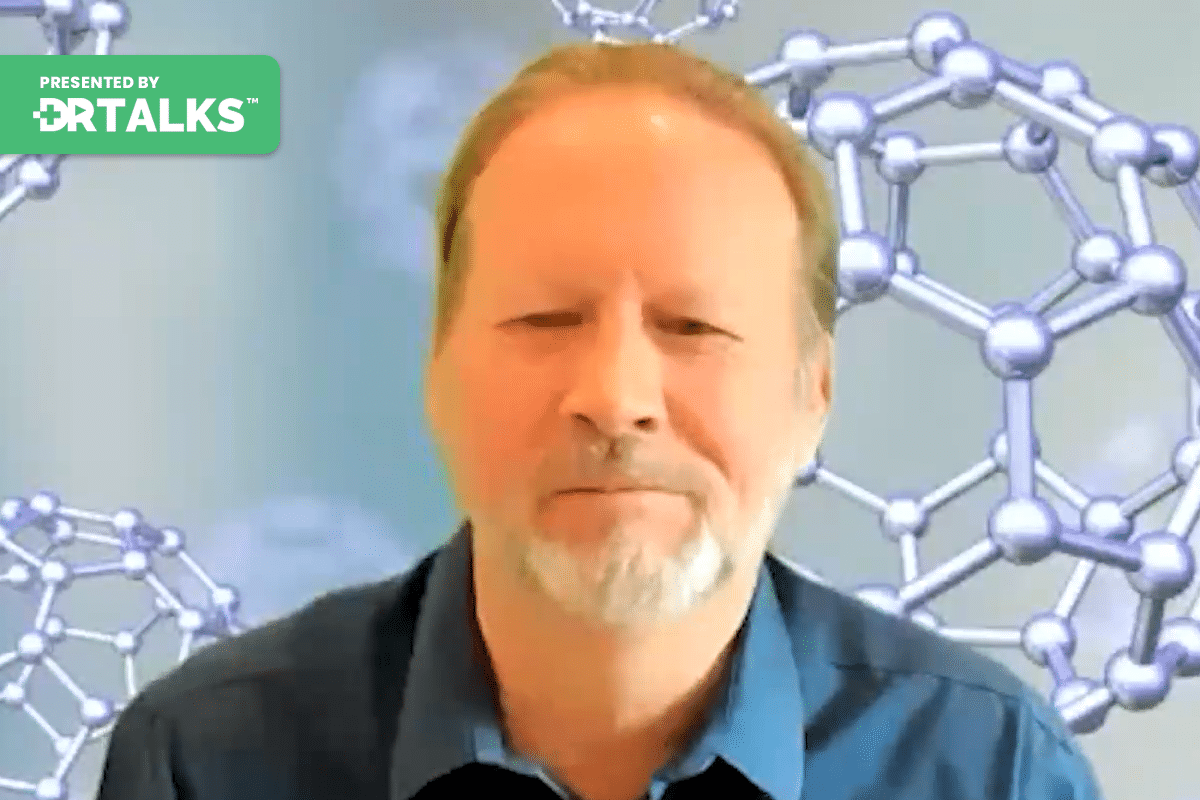Join the discussion below
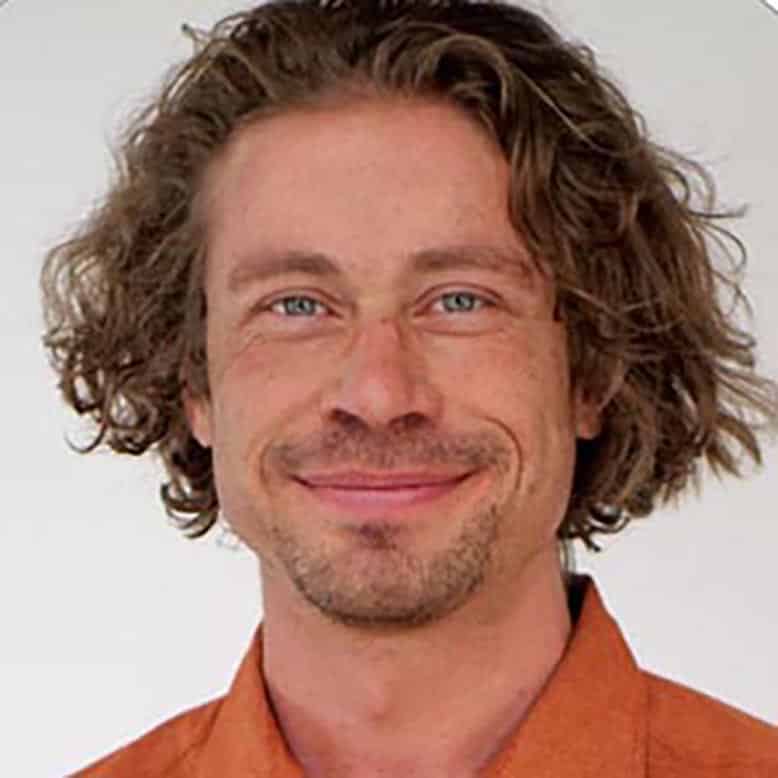
Dr. Miles Nichols is a functional medicine doctor specializing in Lyme, mold illness, gut, thyroid, and autoimmunity. After Dr. Miles personally struggled with chronic fatigue in his early 20’s, Dr. Miles dedicated himself to figure out the root causes. He suffered with and recovered from thyroid dysfunction, autoimmunity, a gut... Read More
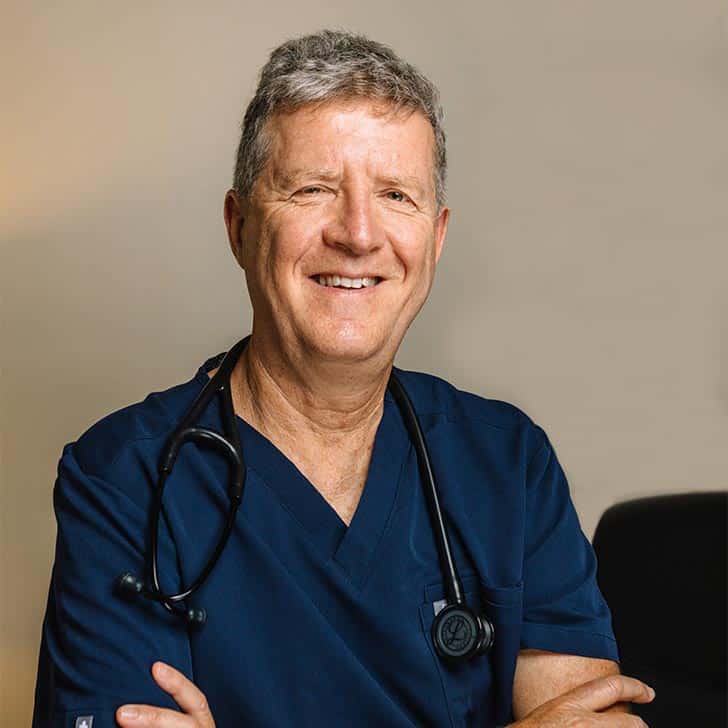
Isaac Eliaz, MD, MS, LAc has been a pioneer in the field of integrative medicine since the early 1980s, with a focus on cancer, immune health, detoxification and mind-body medicine. He is a respected formulator, clinician, researcher, author and educator, and a life-long student and practitioner of Buddhist meditation. With... Read More
- How stress and survival connect with a protein called galectin-3 and why that perpetuates inflammation and disease
- A compound that has shown to block galectin-3 activity and may help with many health issues
- The connection between the psychologic and physiological dimensions of chronic illnesses including mental health concerns
- Impact of epigenetic impact of ancestry and family systems on illness and mental health
- How Lyme, infections, the microbiome, and environmental toxins play together in illness and health
- Practical steps people can take to restore health and reverse the causes of illness
Related Topics
Autoimmunity, Biochemistry, Biofilm, Cancer, Chronic Illness, Dysbiosis, Gut Health, Heart-mind Connection, Heavy Metals, Immune Response, Infection, Inflammation, Inflammatory Diseases, Kidney Disease, Leaky Gut, Meditation, Mental Health, Microbial Harmony, Microbiome, Mind-body Connection, Modified Resveratrol, Physiological Struggles, Sepsis, Stress, Toxins, Trauma, Vector SolDr. Miles Nichols
Hello everyone and welcome to the Microbes and Mental Health Summit today. I’m with Dr. Eliaz and he is amazing physician and he works with integrated medicine and he’s been a pioneer in the field of cancer and detoxification, he’s a best selling author and he’s someone that that I’ve spoken a little right before this interview about some shared interest in meditation and heart fullness and in the mind and heart side of medicine, not just the physiologic. So we have some rich territory to cover in our talk today, the talks titled the Survival response and the microbiome and microbiome health despite aosis leaky gut and achieving microbiome harmony. Of course we’re talking about microbes and mental health on this summit, but we’re going to go into gut into detoxification and into the heart and mind side as well. Welcome Dr. Eliaz and how did you get into doing this amazing, interesting work that combines the heart and mind side with the medical side with research with cancer detox. How’d you get into this?
Isaac Eliaz, MD, MS, LAc
You know, my journey into healing into healing out into martial arts started at the age 15. My father was an engineer. I lived in South Korea for a year and a half and I was fortunate the Korean national team into Cuando had to learn English so they would train with us in our gym. So I got to train with literally all the world champions into condo and go to the mountains and train with them in Leon Yoga. So that’s when I started my exposure. So when I went to medical school in Israel for seven years, it’s it’s different. I knew I’m gonna do something different. I became a yoga teacher. I learned she had, so I learned Chinese medicine for three years while in medical school and once I got my medical license I came to United States with my spouse and my life partner Gillian and her older daughter lee. And I got a master of science and Chinese medicine, became a licensed acupuncturist. And then very quickly got involved in two big highways on the medical level. I got involved specifically in Chinese medicine and the treatment of cancer and difficult diseases. And I got involved in Tibetan Buddhism And for 20 years I would spend two months a year in the mountains meditating in for 10 years later on I would spend half a day on between every day working. Then I kind of took two years off just to meditate and then I gathered all of it together and came back at full speed about a decade ago. And now I’m gonna make a point of sharing these decades of training that encompasses clinical experience, contemplating experience and research experience. I’m a formulate er and the research and natural compounds in immunity in sepsis and kidney disease and cancer.
And then I got some significant and age grants actually to support my work. So encompass both a high level scientific world with an age grants and the very esoteric view similar to our thinking. So for me this topic about is so obvious right to you and to me with digesting the gut, with digesting the brain. It’s mental digestion, physical digestion, how can they not be connected? Right? Its basis in the spleen stomach school of Chinese medicine for millennia. And you know, it’s fun that it’s now being recognized including in conventional oncology, who would believe, Right? So that’s it. That’s quite the journey.
Dr. Miles Nichols
Yeah, that’s amazing. It’s interesting you bring up your father at age 15 my when I was age 15, my father who was a physician and also who was public health educator and the politician was doing really amazing work in the world passing public policy to get rural Areas served with mobile clinics and he was passing policy to get health care for the working poor who weren’t eligible for publicly funded healthcare. Amazing work. But when I was 15 I unfortunately I was got a call and I was remember the moment where I got a call and I was informed that he was in the hospital, something had happened. He had passed from a heart attack suddenly and unexpectedly and that really Launched me into my journey. So interesting to have that 15 years old and something about the father and figure and having that
Isaac Eliaz, MD, MS, LAc
I have a similar story with my father and when he died, but we keep on exchanging stories, we want to talk about. Yeah, we definitely have a lot of you know. Yeah, my father was an amazing, wow, what, what amazing work.
Dr. Miles Nichols
Yeah. And so you’re mentioning this bridge between the, the scientific and the and the, the heart mind side of things and very much looking at having taken a couple of years off yourself to meditate, but then like going full force into researching and developing compounds and and in your book, the survival paradox, which which I’ve had the opportunity to look through, has this amazing perspective on some compounds that might be really important and some a protein, a protein in the body that’s really impactful that not a lot of people have heard of and I’m really surprised to see that not more is understood or or educated in The world of medicine. Even integrative and functional medicine, there’s not a lot about this, this survival paradox protein. Can you tell us more about what this is and how does this relate to health and disease?
Isaac Eliaz, MD, MS, LAc
Of course, I’ve been researching collecting three the specific proteins since 1995 made some of the key discoveries. So it’s interesting and people who know me well say, Hey, you are the best kept secret in town. So now in the last year I’m making a point of sharing the secret. So the survival paradoxes and the book reflects it really offers a different paradigm shift on how we think about our health. So we recognize especially in integrative medicine, that inflammation drives diseases right? We know it very well in integrative medicine. In Western medicine. The covid Epidates really taught us a lesson about the cytokine storm and the results of it. But inflammation is really not the cause, it’s really a result. It’s an expression of our survival response imbalance. So we are built to survive. Every cell in our, in our body, every cell of the 50 trillion cells in our body is built to survive. And it’s automated in us.
So we have an automatic autonomic nervous system response through the sympathetic system. We either fight which equates to struggle inflammation or we flight we run away which we create we hide. We create micro environments. We create fibrosis organ dysfunction. So in the case of let’s say, the gut or the brain will either create gut inflammation or we will create a hiding place for unwanted bacteria. For microbiome imbalances the biofilm imbalance. So collecting three. So this is on the mental level. It happened in a fraction of a second and we can turn it off. Right, when we relax, we breathe deep, we’re in nature, we meditate, we do things to allow our peaceful expression to express itself but biochemically within minutes the body excretes this survival response protein collecting three which expresses its survival mechanism through inflammation. And five broadens.
So collecting three is like the bus, it’s a protein that has a place to bind to carbohydrates and it bites different Liggins. It takes them to the problematic tissue, it creates a pantomime. So you got five collecting threes with nasty Liggins that attached to each other and you’ve got a coating, you got a biofilm. So this coating will create the arterial sclerotic plaque, will create the imbalanced biofilm, will create a place for auto immunity to grow. We’ll create a place for cancer cell to have a micro environment. So in many levels my work is how to melt this separation. This isolation in a biochemical level. And you do it by using a compound called modified respecting the one specifically research is called vector sol which I developed almost 30 years ago. Now, pectoral is almost 80 published papers but collecting three has 10,000 papers. So now finally collecting three is coming to the forefront. So this is why using modified respecting is key In my opinion after being in this for decades. Really, I mean almost 40 years experience the most important supplement one can take, especially for line for mold for mycotoxins. Because why? Because the modified disrespecting will break the biofilm will also buy into the toxins according to the heavy metals but different than any binder. It also attenuated and reduces the unhealthy immune response.
The unhealthy inflammatory response and it can be used with other substances. So that’s one part of my work which is now coming out into the world. You know, Picture cell is the most commonly used the supplement among natural paths and oncological support. It’s finally making it because we’re doing a lot of trials on it in the same time when we are focused in our own drama in our own story and we close our heart, we also create isolation. So when we open our hearts we open our mind. We have an effect similar to what we’ll have when we use modify active perspective.
The reason why I’m telling this story because it’s so interesting for my life journey. You know, on one level I’ve I’ve started meditating at age 15, you know, and then I found after all these retreats and very, very esoteric studies that used to treat some of the most legendary meditation masters in the Himalayas and go every year. So I got some unique teachings but it all boiled out. It’s all boiled down for me to just opening our heart. So on one level of this esoteric journey and on the other level of the scientific journey and they’re actually dealing with the same issue. So it’s really I’m very fortunate that I got to address it in such a comprehensive way and some of my research right now on the removal of collecting three specifically related to infection and sepsis and acute kidney injury in addition of course to oncological support.
Dr. Miles Nichols
That’s fantastic. There’s so much richness there. I’d like to, we’re having a big picture of you here and this big picture view is that when people are struggling with chronic illness with trauma with issues and challenges and struggles beat them, physiologic struggles like cancers or infections or got this bio sis and digestive problems, that there’s this tendency to go into this nervous system response, this fight, this flight, this sense of being in survival mode, as you say, the survival paradox, the survival paradox leading then to unfortunately, a perpetuation of inflammation. You mentioned inflammation, which we see in research as a core component of almost all of the chronic diseases have a component of inflammation in them. But it would be easy on one hand to look how can we reduce inflammation. But then if people just taken nonsteroidal anti-inflammatory drug or an insight or try to push the inflammation down, we know not only does it not lead to resolution of these chronic diseases, but it can even create bigger and other problems. So inflammation isn’t the end target. It’s a byproduct as you mentioned. And so people understand this protein that you’re talking about collecting three. This is something that we can measure on a blood test through one of the big labs and see A level and and what’s interesting to me about this is that historically in my training and functional medicine and I train other practitioners in functional medicine and and at first I was really excited about because I know this nervous system component to be so important. I was so excited about the adrenal testing, the testing for cortisol and and D. H. E. A. The hydra P under sterile and looking at these markers both in the blood and then looking at the salivary tests and then there were some problems with the salivary tests.
And then I was looking in dried urine and then dried urine. It’s okay but it’s sort of like and I and I even did a little trial with meditation and movement and saw significant changes cortisol and increase in dhea an improvement in fatigue scores. And so I thought this is onto something. But I became a little bit disenchanted with these markers as a way to track the progress related to nervous system regulation. And I’m excited for another perspective for another marker for collecting three to be something that we can get a sense. And it’s a pre post kind of a test that I like. So tell me a little bit more about you do a blood draw for collecting three and then you take modified citrus pectin and you do some maybe meditation and other practices and then you retake collecting three and you see changes. Is that correct?
Isaac Eliaz, MD, MS, LAc
So it’s really it’s a great question. A complex one. So as part of my work also yes. Use motivated respecting I’m a pioneer in the field of therapeutic apheresis also in blood filtration For inflammatory issues. Not just for LDL apheresis and so that’s a more more of a dramatic treatment. But collecting three is always present because it has a role in repairing injury and it repairs the injury as a survival response through a damaging process. So the level of collecting three will vary depending on our genetics. So you don’t rely on collecting three levels to decide if you are going to use modify active respecting or not.
Pretty much. People ask me who needs to use modified respecting anybody that is breathing above a certain age because as you age, collecting three levels will go up. If you look at general population, the affirming offspring study 8000 people age 50 The lowest 40% of collecting three compared to the upper 20 Over 10 years. The upper 20% had three times all cause mortality 33 times the amount of people died from different reasons over 10 years. So the idea is not necessarily just to reduce collecting three, it’s to block the damaging effects of collecting three and modified respecting does it? As your inflammation improves as your health improves the body now knows it’s not in survival mode as much collecting three goes down. And you have said so, so actually you don’t decide if to take or not take motivated perspective based on collecting interview, why would you do collecting three levels one for certain patients, you will see a great correlation between collecting three levels and the severity of the condition on ecological cases. Auto immunity very significant. And in these cases you can when you can check one time the patient is worse, collecting three is higher. In this patient the collecting three will be a very good market. The other case is people are supposedly healthy. Every patient is doing well. They just came because I want to take care of their health.
Okay, you do some detoxification work for them. They want to work on their mental health and you check their collecting three and it comes 17, 18, 20. Well that’s high, something is going on. These people need a full dose of modification respecting 15g even 20 if they are above 18, even if they have no symptoms because something is going on often it will be heavy metals or micro toxin that they’re not maybe reacting to or s car that didn’t heal. So that’s 11 thing. The other thing since you brought collecting three, we cannot rely on the values in the laboratory forms. The reason is these values were established in 2011 when the test was a manual test and the manual tests showed higher levels.
They were established in patients with congestive heart failure, most of which have kidney damage and therefore don’t excrete collecting three well. So they tell you think levels under 17.8 are normal. But in this study I quoted with the three times mortality. The upper 20%. Their average was 15.6 only and this is with the manual system. So right now you, most of the people you see now will be single digit 678. You see anyone that is above 12-13. They need to go on the full dose of motivated respecting 15 g a day. Once they are better they can go down to the maintenance dose of five g a day. That’s a little bit of an overview on how to use google acting three and and modified with respect. And in the book I talk about it a little bit but I wanted to make sure that we share with the audience the best way.
Dr. Miles Nichols
Yeah. Yeah. And I love that there’s this sense that okay it’s not that it’s not that elevated collecting three is lowering directly from modified citrus pectin, pectin is preventing the Liggins from binding to the collect in three. So it’s almost like they’re not going to have that proinflammatory effect. But that you also say, hey there it’s not that it’s a problem a little bit is is good. It’s necessary for repair but too much chronically over a long period of time. We’re going to see this increased mortality in this. Yeah.
Isaac Eliaz, MD, MS, LAc
And a little bit will and you can’t go wrong because even if you’re blocking it if it’s needed somewhere the tissue will express it. So that’s one concept. The other concept that I want to go is you mentioned this. D. A. G. A cortisone. You know like cortisol went down the A. G. A. Went up that you know like in Chinese medicine with the imperial fire you know and then stomach hit and kidney adrenal fire. So what happens when the body’s innate function is working better and you have more D. A. G. A. Then you need less cortisone. So you get these things a little bit. Also in line patients, if you look at some line patients you will see that the C. O. P. Can be very low very very low and the collections we can also below because they are not able to mount a normal immune response.
Yet the Tgs better can be very high sometimes. Right? The fiber optic you give them modify sit respecting suddenly crp becomes undetectable to become 0.3 galactus. We can come up from being too low to about six or seven and Tgs better drops down dramatically because abnormal collecting the metabolism will stimulate T. G. F. Better. So when collecting three, if you look at the diagram and this time I decided not not to share slides. If you look at collecting three in diagram in the middle it will stimulate macrophage to become inflammatory and all the cytokine cascade interlocking six. Interlocking tank interleukin one B TNF alpha or it will stimulate myo fibroblasts. T. G. F.
Better fibrosis both lead to organ dysfunction. So in my research that I published some very important research we show that when you create a sepsis model in animals Collecting three goes up before interlocking six And when you block collecting three with modifications respecting you attenuate the rising interleukin six and you attenuate the creatinine writes the kidney damage and the death of the animals. So the. Sorry. So this is why M. C. P. Is so important. It’s really the upstream it’s like shutting down the waterfall cascade of damaging cytokines from the top. Instead of what you mentioned already trying to catch the waterfall with the bucket at the bottom. You know it’s not gonna work very well.
Dr. Miles Nichols
Yeah. And for the audience to cytokines mean inflammatory proteins. Interleukin six is one of the big inflammatory proteins and it was part of the covid cytokine storm that was contributing to this lung issue. And there’s also this aspect of the doctor lives we’re talking about T G F beta one, this transcription growth factor beta one which is this also it’s it can be pro inflammatory in a different way but the crp Hs crp or c reactive protein is an inflammatory protein that will see elevated with rheumatoid arthritis will see elevated with certain conditions. But sometimes with Lyme disease which we know to be one that relates to mental health which will get to an end moment here that we sometimes see a crp being very very low and and dr lies is adding that collecting three could be low too but still modified citrus pectin would be helpful in that case to bring T. G. F down.
Isaac Eliaz, MD, MS, LAc
It will be dramatic. We have certain Lyme clinics that every single pay now that the secret is that is put on on on motivated respecting because they don’t hurt. They don’t get the aggravation. The digestion improves the mental function improves. So one talking about mental health in the gut. So when the gut is imbalanced and the one of the way for the microbiome to respond to stress is by changing the nature of the biofilm and becoming more aggressive. And they do it through collecting three. So collecting three is the backbone of the biofilm. So for example when you give we have a number of published paper with the USDA. When you give our modified it’d respecting you improve the antibiotic effects of antimicrobial and you improve and support the beneficiary bacteria of the gut.
So collecting three can disrupt the gut lining and collecting three disrupt the blood brain barrier. Well published. So now you’ve got larger molecules penetrating into the brain, larger molecules penetrating through the gut. Right? We and then collecting three will activate the micro clear it’s the key micro glial activation microglia are the cleaning cells of the brain just like the macrophage in the body and they do this through inflammation. So more than this when we look at brain function. So we got inflammatory and narrow inflammation, right? That affects us in so many levels. And we also have circulatory issues not getting enough blood into the brain. So when we have hyper perfusion reduction in oxygen to the brain, the brain cell responds with excreting collecting three that creates inflammation and creates damage to the nervous system. And when you give these cells, when in studies, that was important study this, you published when you give them our modified respecting you reduce and attenuate inflammation.
So because this is a repair system, Then, for example, in the Alzheimer’s plaque, you have 20 times concentration of collecting three compared to normal brain tissue. So that’s why addressing collecting three is so fundamental to narrow inflammation and so fundamental to gut health. And that’s really with why the name of your summit is so important microbes and mental health. You know, you are not you’re really you’re really making a connection between living organisms in our body and our mental function. Right? And if I can go a little bit further on this and in the book, I talk about, I have a chapter on microbiome, really our relationship with the microbiome is a reflection in the macro cosmos of our reflection with the outside world. You know, if we look at the digestive system, it’s really hollow tube from the mouth all the way to direct we can eat something. It will go through will come out. So our boundaries, we have our skin boundaries. We have the boundaries where react to the world with our senses and we have our gut boundaries and in the gut boundaries we have this magical community that we don’t always recognize and respect. 100 trillion organisms or 5200 more than our sales, 90% of our DNA material is in the microbiome and we support each other. We respect each other in good healthy times the you know, it’s mind blowing that if you for example use one of the most common chemotherapies, Adrian mason and you took antibiotic in the same day when you get your chemotherapy, the chemotherapy will not work. The microbiome is activating the drug to help us overcome a disease. If you do immunotherapy PD L. One inhibitors, their effectiveness depends on the microbiome.
A study just published on a on a on bladder and kidney cancer with immunotherapy show that when the microbiome is improved, there is 2 to 3 times better survival, Insane. You know, you and I who would if we told this to an oncologist 15 years ago they would throw us out of the room. You know, I’ve had these discussions. But so when we look at the microbiome, it’s a relationship it’s mutually respect. So anything that disrupts the microbiome causes the microbiome to have a survival response and it will utilize, collecting three. So for example, the most common pesticides is glyphosate By £330 million £1 a year, water soluble all’s it for flow through the water and all of us have it. It affects our ability to absorb nutrients and what it does is indirectly by disrupting the microbiome. It disrupts our gut line.
Now you got leaky gut now you’ve got macromolecules coming into your body life as it penetrates into the blood brain barrier where it’s very similar to glycerin, the smallest amino acid, which is a neuro protective and it creates an excitatory effect in the brain in life that we know damages the kidneys, chronic kidney disease and relate to certain cancers, especially thyroid, which relates to metabolism and and leukemias, blood cancers and some others. So here we are bombarded with the toxin that continuously is affecting our gut lining, our immune system, our autoimmunity and multiple illnesses.
So part of the approach on a biochemical level is removing pesticide. And I’ve made it one of my new projects. I just finished the preliminary data on a product developed called Life or detox, where we dramatically reduced glyphosate levels. But and the part of why I’m really into it now is because I realized, my God, I think you are accepting the fact that everybody has glyphosate and it’s like, it’s like accepting that we’re all gonna be poisoned and it’s okay. Right. So it’s really an issue. That’s one compound that really affect the microbiome. But on a bigger, deeper level it’s our relationship with our environment. And this is where the survival paradox makes such a profound contribution and why. And it will connect to your heart fullness, talk and openness. And because every cell in our body, every cell of our 50 trillion cells and itself has close to one million reactions is second. Every cell in our body wants to survive. It wants to take in nourishment, right? And it puts out what it doesn’t want through the membrane, through its boundaries. And then if it feels safe it can produce energy in a relaxed way through the mitochondria 36 80 P for one glucose. If it feels threatened in a survival mode, it moves to like Alexis. Energy produced 100 times faster. Only 5% efficiency, lactic acid hypoxia. And here here goes. You know what you have in line disease in multiplicity, everything that you’re working with. So every cell does it. Every tissue, every organ does it in the body. The only organ in the body that behaves differently is the heart.
The heart accept everything that the body doesn’t want through the venous system, it doesn’t say I’m going to accept only dirty blood from the liver or from the brain or from the kidneys. It except with an open heart, it connects with the universe through our breathing. By the lung serves the heart with Chinese medicine. Doctor know it very well by the Prime Minister. This exchange and then the heart gives the nourishes without discrimination. There oughta is a stiff outer, it doesn’t contract or expand. It sends blood everywhere. And who does the heart nourish first? Once it’s done its work, it nourishes itself through the coronary artery. So the heart nourishes itself in order to nourish others and is part of nourishing others. And that self love is part of loving others very different.
The narcissistic focus completely different. What’s interesting about it for me, you know, when I made I kind of made this observation and putting it out in the world. What’s interesting for me is that, you know, the heart could have nourish itself in the left atrium, right there, it’s clean blood coming from the land, could have had the coronary artery anatomically. The heart doesn’t take care of itself until it finished its work. The only organ in the body complete selflessness. So the survival of the heart is to give with an open heart, no matter what happens. And when we connect with this, we connect with our infinite healing potential and that’s really at the essence of of the summit, you know, that’s the connection when we connect with this and we nourish everywhere. We also respect our microbiome.
That’s why white. When we relax, we can feel how the gut immediately relaxes, right? The microbiome is happy serotonin is excreted, right, 90% comes from the gut. So that’s a little bit because of our pre interview discussion. I wanted to tie something one level. This idea of open heartedness, which is not an idea. The electromagnetic field of the heart is 100 times bigger than the brain, which means for the people listening that every second what you generate in your heart is affecting every cell in your body and people around you. Amazing, wow. You know, that’s why a hug is so healing. You know when I teach retreats and then everybody stand and give them a big hug and it’s really my way of kind of feeling their energy and giving them and giving them healing. And when we understand this, there is a place in meditation since you’re interested in it, where you no longer think from your head. So example when I’m talking to you now and I’m kind of thinking I feel the thinking here, I don’t feel the thinking here. And this is when heart fullness and mindfulness become inseparable when we connect with this, anything and everything is possible. And the microbiome is part of this picture, it’s part of the support. But when we lose our diversity, when we become opinionated just to our point of view, then the microbiome will lose its diversity and then it’s all downhill. You know where, sorry for the long story, but I thought
Dr. Miles Nichols
Yeah this is rich and story is so important here and you’re bringing to light some things that I think are really important for people to understand. Which is that. And even to your point about from here versus from here, the mindfulness, the heart felt sense the heart fullness, the coherent heart field that many cultures actually when you ask where’s the mind they say here, you know? So the translation sometimes is in the language is a little and when mindfulness came over actually, maybe the original intention had something more to do with the coherent Hartfield than it did with cognitive.
And there’s also this sense that with this story, this big picture story here, there’s a corollary, it’s like there’s a physiologic psychologic corollary, it’s like there’s not so separate of a mind and a body in the heart, there’s this sense of a cohesive mind, body heart process that’s arising and whatever the corollary is, like if you’re talking about the gut microbiome and the bacteria becoming dysfunctional and there’s then this sense of due to whatever reason going into survival mode, potentially in the nervous system impacting the gut microbiome and then that leading to this expression of collecting three and then that leading to biofilm for audience, if anyone doesn’t know biofilm, it’s like if you have a half water glass, you let it sit out for a few days and it has this little film around the top that’s very hard.
It’s kind of like that where bacteria protect themselves and create a protein matrix around them. And there are studies like you are mentioning that as biofilm breaks down into by antimicrobials are more effective. That there are studies that show you have to have almost 100 times the same dose of antibiotics to kill bacteria behind biofilm. It’s dramatic because it protects so as we’re protecting our heart to as a consciousness coral or even putting walls up because we’ve been hurt. All of us have been hurt. All of us have had situations, relationships with someone has done something that wasn’t so kind and caring and it’s created this wall in the heart that’s protective for a time, just like biofilm protects the bacteria. But it does it at a limited level that can then become problematic for the whole of the organism, just like the heart is serving the organism and then itself. And there’s this sense of there is self love and there’s taking care of the ecology of the whole of the body that we can segment. We can block, we can wall internally the heart off and put on armoring and put on armoring. And this is something that I think all of us do. I think that it’s to varying degrees and some of it is protective and there’s it’s hard to know who to trust and who to let in vulnerably. And yet there can be a numbing that occurs. There can be a numbing to life, the emotion of life, that the richness of the emotional experience. And then when we get into these mental health concerns depression and anxiety, when we get into these issues where people are feeling like they’re really intensely experiencing something that’s hard to deal with internally.
Then mostly, unfortunately, the things that are offered to them might be an anti depressive medication that might actually numb further the feelings. So while it can help the intensity of the depression at times it might also numb the joyfulness, numb the opportunity to be vulnerable and to share and love with others in connection. And many people don’t like that either. And many people in mental health field who are dealing with depression or anxiety are relegated to feeling like my options or talk therapy and I don’t feel like I’m getting very far very quickly or I can take antidepressant drugs, anti anxiety drugs but I’m numb to life and they are missing. What, what else is there? Where is the missing links? And here in your story you’re pointing to? Well, when the survival mode kicks in that the expression of protein creates a situation that worsens the microbial imbalances in the gut that can worsen systemic infections, you brought up sepsis lime and Barton yellow we know is another infection that can relate to mental and emotional disturbance and then some of the viral infections can relate to mental emotional and have links with brain autoimmunity forming.
You mentioned bigger proteins getting through the gut and now we’re attacking brain tissue and dopamine receptors and tubular in and lyssa gangly aside and other things in the brain are getting attacked and now the brain isn’t expressing and people are unfortunately sometimes relegating themselves to self blame. Usually if someone has if someone has something that you know they have a you know migraine headaches or something, they’re a little less likely to self blame around that. How am I creating my own migraine headaches But with mental health for some reason it’s this thing where how am I self creating my depression or my anxiety. So can you speak just a little more to that?
Isaac Eliaz, MD, MS, LAc
Yeah, of course and it’s a little bit and that’s what I said about the heart. When the heart works properly, it nourishes itself very self love. So self blame is a losing proposition. And you know it’s a tough one. You know I come from in my book, I tell the story, I come from a family of holocaust survivor. I’m named after my grandfather Isaac which I didn’t meet, he died at age 52 in Israel and in the early fifties and when my grandmother died at 98 on his in a funeral, my mother turned to us, we didn’t know we have five siblings and she, she turned to us, it was 50 years later she she turned to and said you know 10 of 12 siblings got killed by Hitler. 10 out of 12 never talked about. So he died from stomach cancer. J. 50 couldn’t stomach what happened. And I all my life I had this pain in my chest that no very tender which I kind of knew for my work it’s not mine. So when I connected with it and when I healed it so now my chest is more open. I mean you can feel it, you can see it and I don’t have pain anymore. It’s insane.
After like almost 60 years and suddenly my mother I didn’t tell my mother is a mother an amazing woman and I didn’t tell her anything. And suddenly for the first time in her life she was able to watch tv. Programs about the holocaust. She had her own healing through me. So this is a multi generational healing. So we are made out of infinite number of people. If we look 25 years one generation right? 50 years to generation Two to the 64 is only an infinite number. The famous story with the chest and the grains of wheat that’s only 1600 years. So infinite. People have made us an infinite people related to them had certain traumas that are all registered in our D. N. A. Through genetics and epigenetic.
So I often say you know in Buddhism as a concept saying have compassion to every living being to every human being as if they have been your parents. Mathematically it’s true there is no way the two human beings are not related with this infinite numbers. Often you look back there tens of thousands of relationship all the 23 me and answers to your showing right. People have suddenly thousands of cousins. So we are interrelated. So what we express is often a result of what happened to us in our life or what happened to our ancestors or their friends or their family in their life. And it’s coming to expression now. So blaming makes no use.
But when we do the level of feeling that you are talking about, we experienced multi generational healing. You know I’ve been teaching about it for decades and drawing and drawing the diagrams and people understood me. I mean the guy is a little bit crazy you know and now suddenly epigenetic comes in and oh my God Isaac who would believe you should read the research. You know? Well it came to me through my insight, meditation, insight, you know it’s a different quality of knowledge but it’s supported by science and the amazing thing that I want to relate to what you said is we have a choice to change with every thought right? We don’t know what our next thought is gonna be right. And if we are open to the fact that anything and everything is possible, it will express itself. And this of course relates to deeper meditation practices where you got to go beyond mindfulness, you it’s not only about relaxing the system, but it’s about letting go of whatever arises a great experience, a bad experience. They’re all impermanent the moment we can just let go, we allows the system to regenerate because what is survived survival is not letting go of something which came to an end. That’s the definition of survival, right? That’s why it’s innate in us. So the classical cell in the body that does it, it’s a cancer cell. It doesn’t want to die. And it sure uses collecting three. We just published a paper on our modified respecting on multi center trial just presented in europe two days ago, 90% benefits because in recurrent prostate cancer. Because when you blow collecting three, the body now can handle its issues. So the same thing here, if we recognize that everything is changeable, then we have a choice. People tell me why you’re such an optimist. You always everything is possible. It doesn’t mean one of my most favorite saying is not everybody will be a miracle. But anyone can be a miracle.
And what is the definition of a miracle actually talking about it in my book a little bit. A miracle is something that is unexpected, right? We agree to this. So you can say one in 1000 One in 10,000, okay, one in a million, wow, okay. If we are going, if we feel miserable and unhappy and we don’t feel well and we have a certain habits that we are doing. If we keep the same habits, we ain’t going to have a miracle. You know, we have to change our habits and the mental approach. The heart approach is a key thing. When we come from our head, we always stop and analyze when we are connected with our heart, the heart flows the moment the heart stops, we’re dead. So if we can connect with this flow then everything becomes possible and as you know, well there is more input from the heart into the brain, from the brain into the heart.
You know, there’s the whole nervous system sitting right here and all of this relates to this concept and the last thing that I wanna say, we all fall into feeling bad, we all fall into feeling depressed. I do, I bet you do. Sometimes, every human being does the beauty, it’s impermanent, it changes. So the trick is not to hold to the experience, you know, so many addictions, so many people who committed suicide, if they could just take another 10, 15 minutes, another day, another two days and slowly things will change and never transmitter drives a big part of it when the heart is inflamed when it’s fi brought IQ, when glia cells are not responding well whenever transmitter not responding well when the whole door opening, dopamine balance is not responding well. But there’s a lot of excitatory levels. No glutamate is high, Gaba is low then yes, we can fall into these very dull places definitely.
Dr. Miles Nichols
Yeah. And we’re really expanding on what traditionally medicine is relegated to the physiological and then psychology and psychiatry are looking more at the psychological dimensions and the interplay between psychology and physiology with neurotransmitters and neuropsychology starting to arise. And as this progresses, I’m hoping to see more of an integral approach to medicine that recognizes mind body as a co arising phenomena. And looks at the hard aspect. Looks at the personal parts of my own journey, my own past, my own thoughts and feelings and spirituality and also the ancestral impact and the epigenetic impact that we’re starting to see come in and also the physiology and how the physiology impacts consciousness and how consciousness impacts physiology that we know that these gut signals via the vagal nerve, from the gut to the brain and from the brain to the gut and from the heart to the brain and from the brain to the heart and the coherent field of the heart and the heart rate variability.
And we’re starting to tune in in medicine to wait. There’s a big connection here and if there are infections they can create an autoimmune cross reactivity and create issues in the brain, certain bacterial issues in the gut can actually the american psychological association is now saying most of the neurotransmitters in the brain are due to signaling from the gut to the brain to tell the brain what to make in terms of which neurotransmitters?
Isaac Eliaz, MD, MS, LAc
Well you is the you use the beautiful term co arising. My gosh, what a great term. I haven’t heard him in these words. It’s really coy rising. You know I always remember I was beginning of medical school already and people was said oh this is a psychosomatic disease and I would always tell people you know there is no such a thing like psychosomatic diseases, there’s no such a thing like no psychosomatic disease. It’s all interrelated how can you separate it? Some is more obvious, some is not but co arising it’s a great term and its co arises.
You see some patients you need to go more physiologically emphasis that we talked about collecting three, we talked about pesticides, we talked about every metals etcetera, you know some other infections of course some other patients. It’s more mental scarring, it’s more trauma, it’s more emotion, it’s more multigenerational issues. It’s that’s why every patient is amazing when when we when we put this kind of glasses, every person is amazing and when you look in in the algorithm model of Western medicine these days it said as advanced as it is it’s said you know. Yeah but I think there is a shift there is it has to happen.
Dr. Miles Nichols
Yeah. So as we wrap up here let’s bring it really practical for people about, we’ve given this very overarching framework that there’s this co arising mind body heart phenomenon that’s personal. There’s also collective and generational and relational dynamics and social systems that are at play and their environmental toxins that are at play like life estate. So we’re saying okay there’s the external collective of life as a toxin environment, there’s the internal collective of the ancestral impact coming in and the relationships that you’re in. There’s the personal internal of the thoughts that you’re having, the emotions that you’re experiencing the way that you’re relating to your past and then there’s the personal external of the physiology, the infections that got this bio sis the toxins that have accumulated inside of the body and how all of these are going to impact the system as a whole. We have this big picture of framework. So I’d like to make sure that people walk away from this discussion with that big picture frame and then some nitty gritty practical on the ground.
Isaac Eliaz, MD, MS, LAc
So I think the most important thing, basic simple straight forward. You got to add pictures onto your supplement program and I’m saying this not because I developed it. If you look at my child 15 years ago, it wasn’t my first supplement now based on the research there is nothing more important than this. You cannot block collecting three through this food, you can get vitamin C through food. You can get vitamin D. With the sun, you can get fish oil, you can get the right correct ma defensive perspective and collecting three drives aging drive narrow inflammation. Drive goddess bios this and because of its role, you can combine it with medication with diet with other supplement because it opens the door to everything else. That’s one part.
Dr. Miles Nichols
And to be clear about that people can’t just bake an apple to get the pectin to release because the size isn’t right of the molecule right?
Isaac Eliaz, MD, MS, LAc
Exactly. It’s special it’s modified to a very small size specific structure so it gets absorbed into the bloodstream. Regular pectin is the fiber that does not get absorbed. Then we have to address toxicity. Mall toxicity, Pesticide toxicity, heavy metal toxicity. I mentioned glyphosate detox as a product that I’m researching with the results. Whatever you’re using, it’s very important. And then and when you do this you will naturally also benefit. You’re never inflammation. Just by these two do 22 basic products we have to support our microbiome with prebiotic probiotic best use life life product liquid product that life and energy in them.
And then we got to do the lifestyle changes the mind, the mind heart changes and have respect and recognition and gratitude to our microbiome really like thank you. You know, they’re actually helping us and we’re helping them. It’s an example of a synergistic relationship that we sure need right now in the world as we disrupt this relationship and we get inflammation inside our body, we get global warming outside our body. It’s the same reflection. So this is on a bigger picture but on a practical picture you can walk out by saying okay, Picasso is very important and I think from feedback from people the survival paradoxes really really offers you know a paradigm shift. I recommend, you know, to you know, it’s available on amazon and people who want to learn more about since we talked about how to approach about my approach, then they’re welcome to go to dreliaz.org or to the survivalparadox.com or to go to pickthesoul.com to learn about the modified respecting that a little bit of coming down with integrity details.
Dr. Miles Nichols
Good, good, that’s wonderful. And I highly recommend the survival paradox because it also presents this as a story and it gives the scientific detail and it also talks about the heart field and it talks about the importance of the mind, body aspects of things. And it tells that story
IsaacEliaz, MD, MS, LAc
And it gives very practical, you know, the last part of the book is detoxification, healing the scars of survival and freeing the survival paradox, how to do it. And then 80 pages of protocols that name. So if not 10 steps to these eight steps to this, it’s changing the way we look at reality and health and then giving practical tools how to do it?
Dr. Miles Nichols
And to conclude, I want to emphasize some sense of hope in people if they have been struggling if maybe they’ve been trying many things so far. I think that when we’re talking about the heart and the heart coherence here, that many people say, oh you know, I’m fine, I’m okay. Like I’m dealing with some mental emotional stuff and everyone does. And and there’s some aspects of depression and anxiety that come up for everyone and the somatic feeling sense inside when there is the release of some of these, as you mentioned, the ancestral for you was a big part when there is a release of some of these aspects when we are working physiology and we’re getting these inflammatory levels down and the infectious slowed down and the toxin level down the body the immense sense for me.
And I think for many when this noise has been cleared, is this beautiful love emanation from the heart as a central feeling and to say I’m good, I’m fine. I’m okay to me isn’t enough today that there’s the potential the capacity for being connected with a sense of a love energy that’s emanating forward and outward and that there’s this sense of a passionate purposefulness to life. And so I want to encourage people not to settle for feeling okay. And that if we take some of these practical tools, where do you find that people can end up? Do you find similar a sense of this?
Isaac Eliaz, MD, MS, LAc
Of course, of course, and really, I mean the profound itty of healing that people go through, you know, it’s amazing, especially with mental issues with pain, issues with fibromyalgia, issue with Lyme disease related issues.
Dr. Miles Nichols
Yeah. Wonderful. So there’s hope and so thank you so much. Dr. Eliaz, It’s been a wonderful pleasure and thank you everyone for tuning in. Please do go check out the book, the Survival Paradox and the rest of Dr. Eliaz materials. Take care everyone and have a healthy and a happy day.
Downloads
